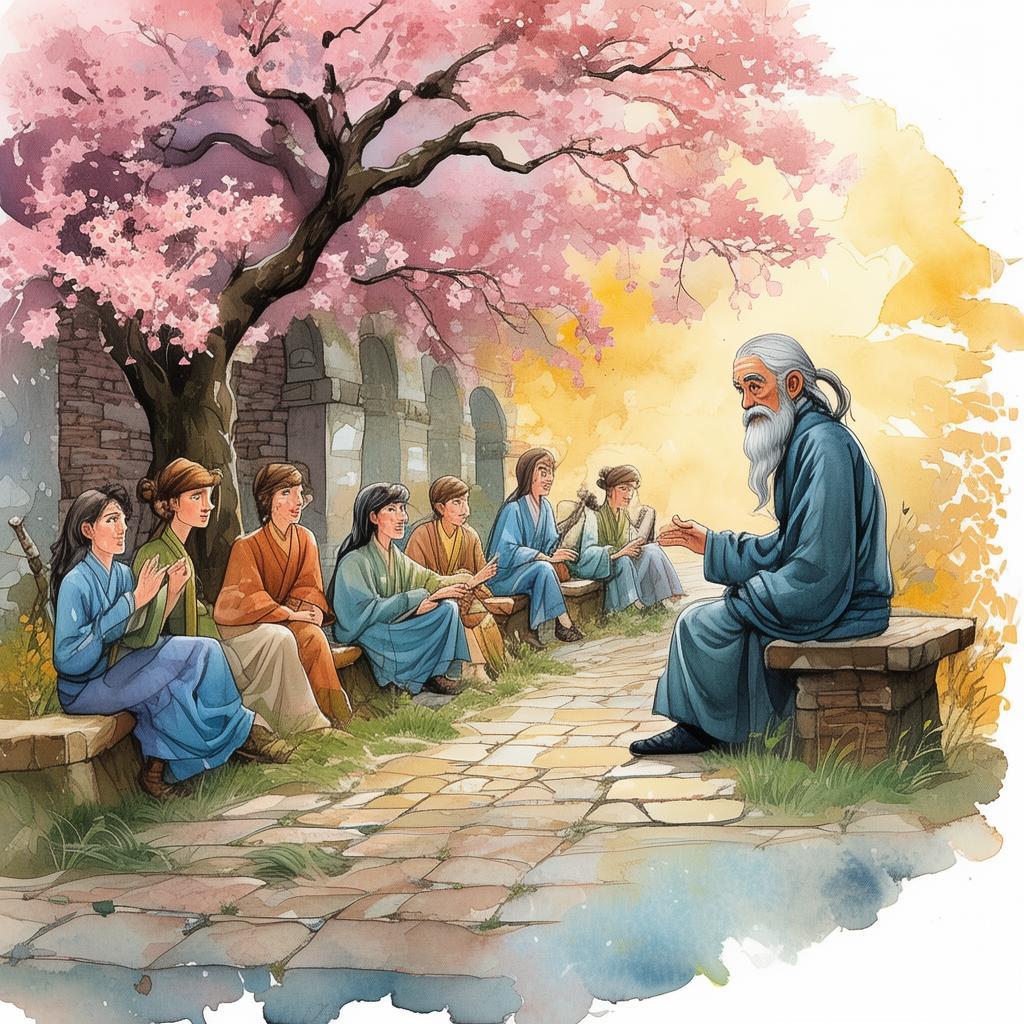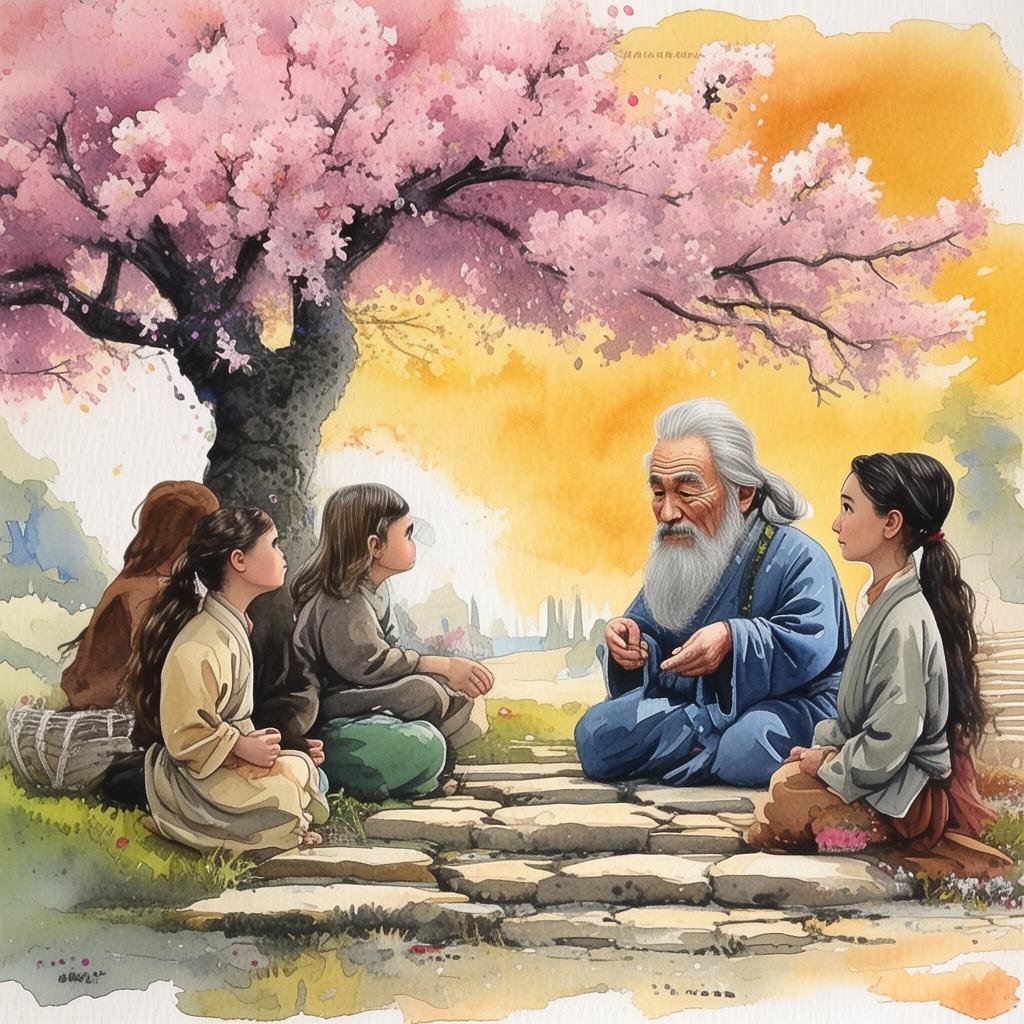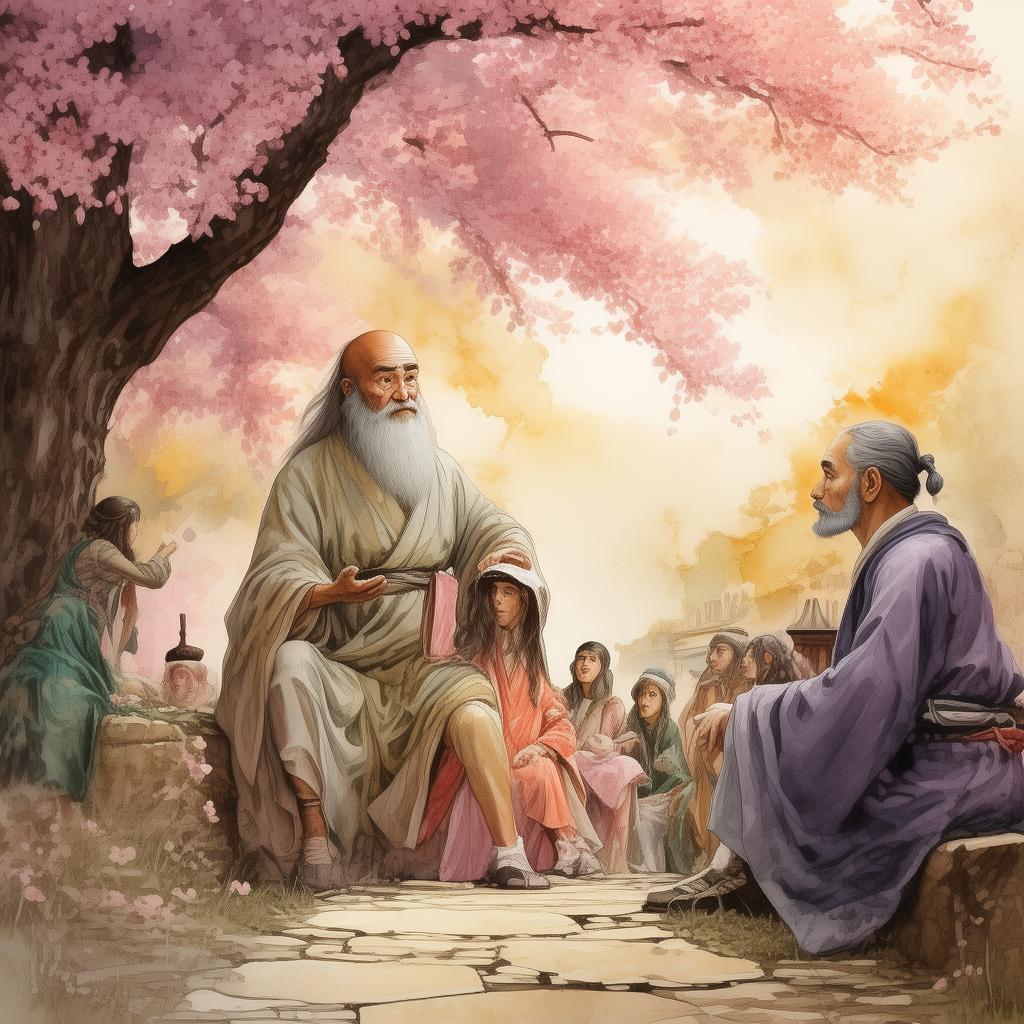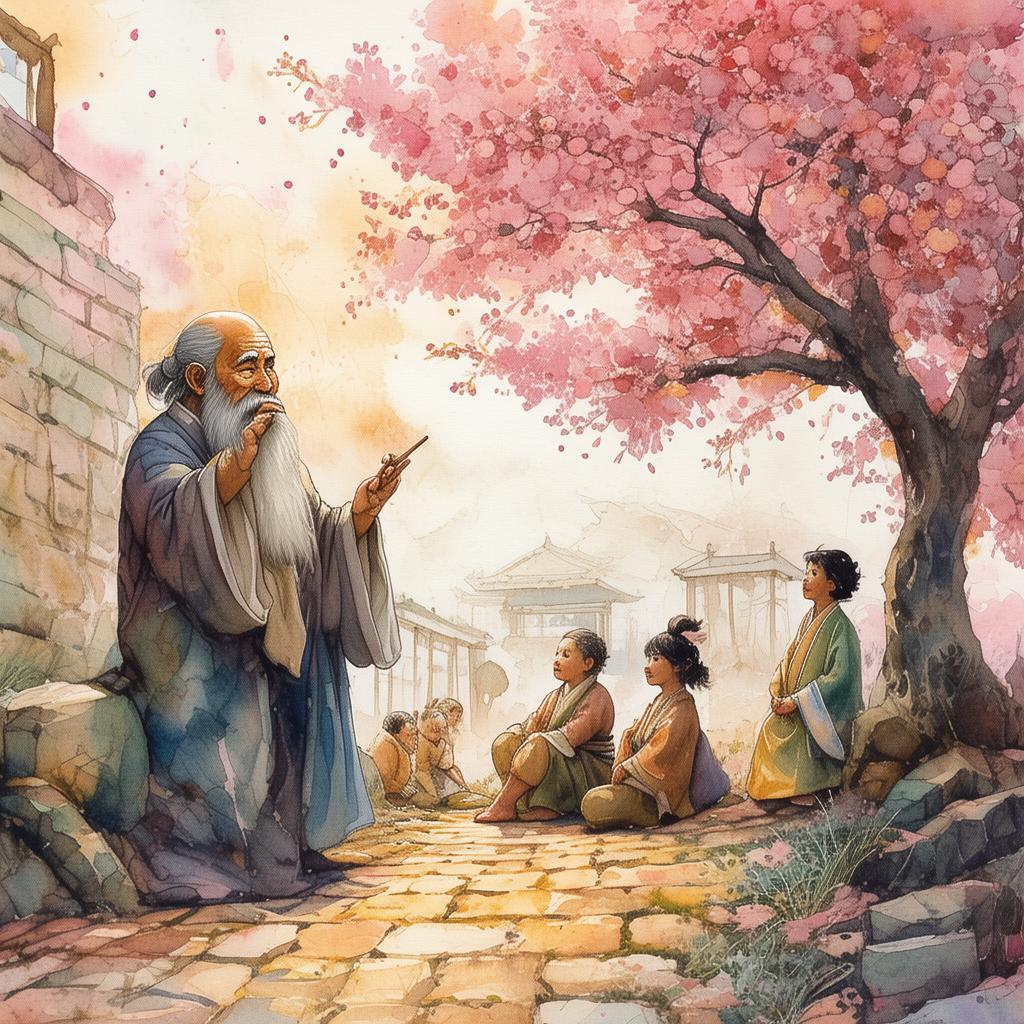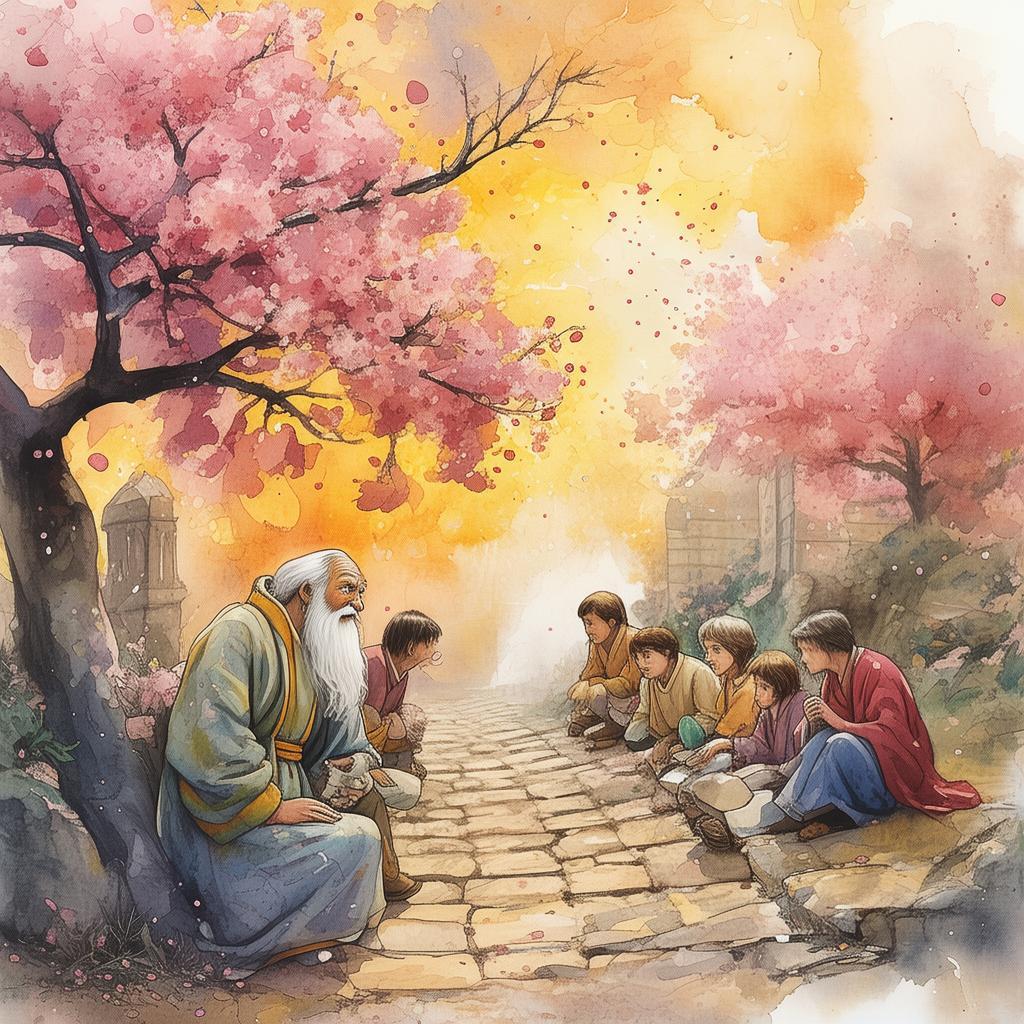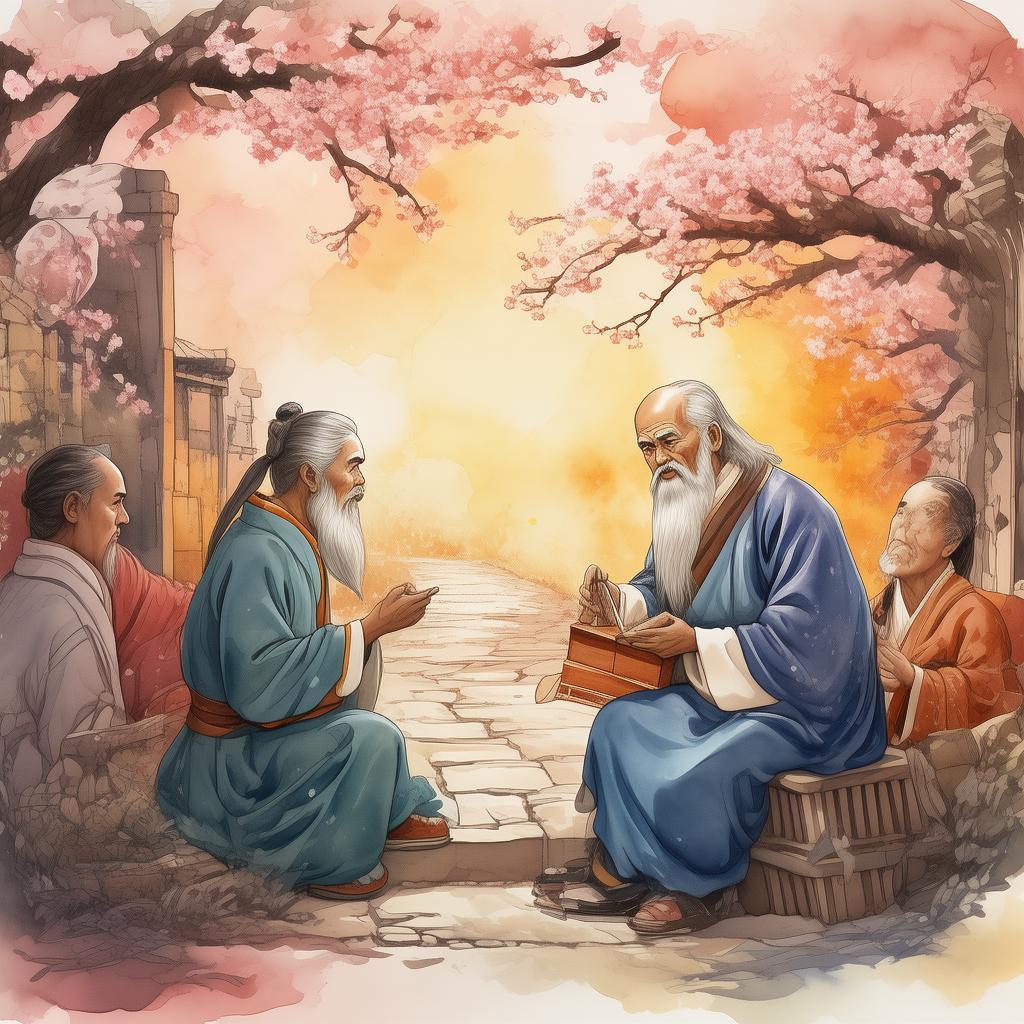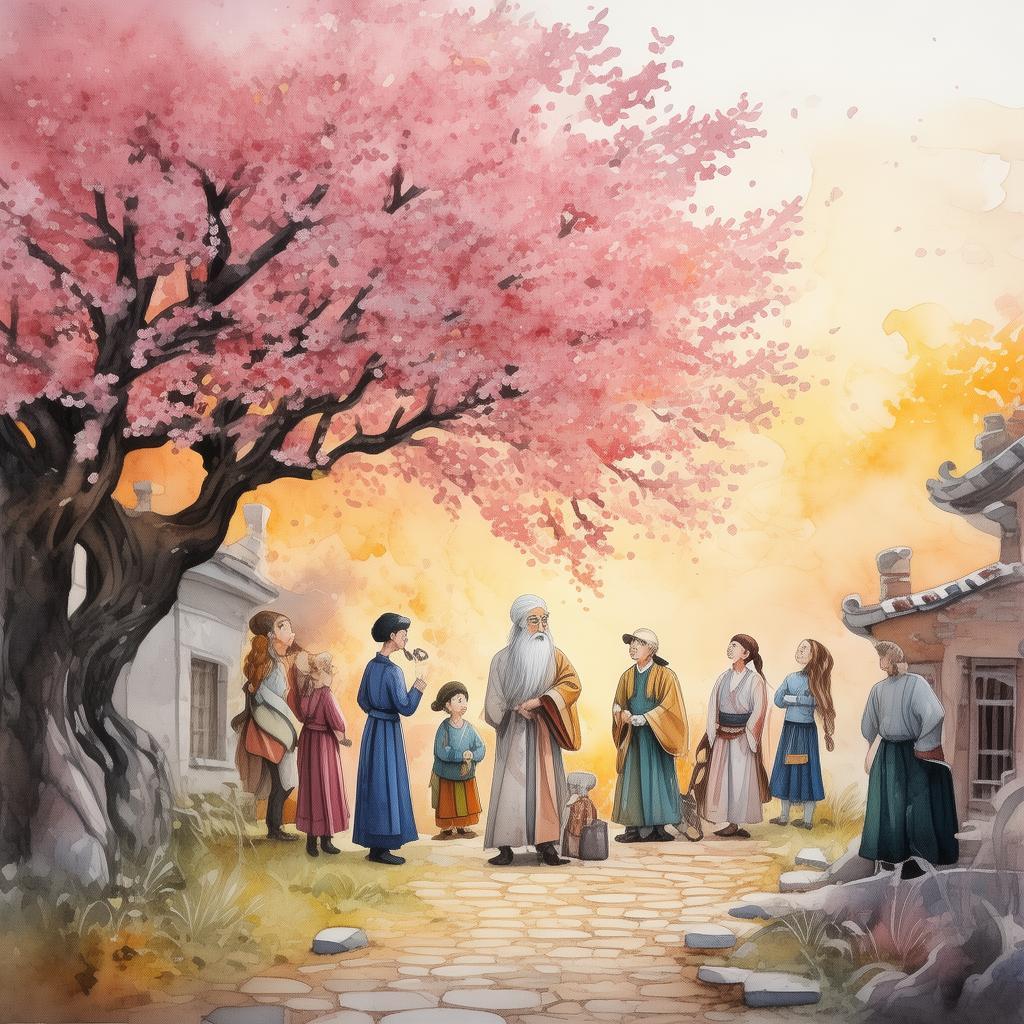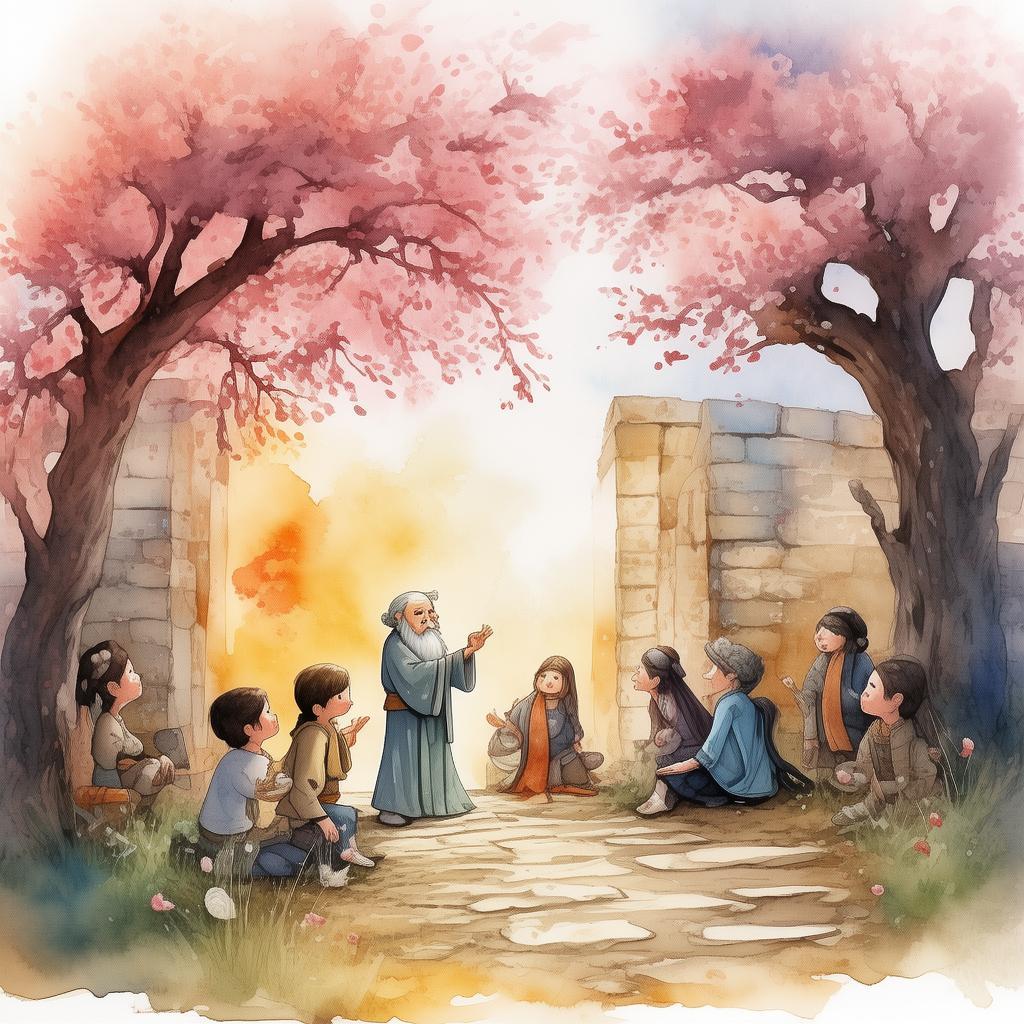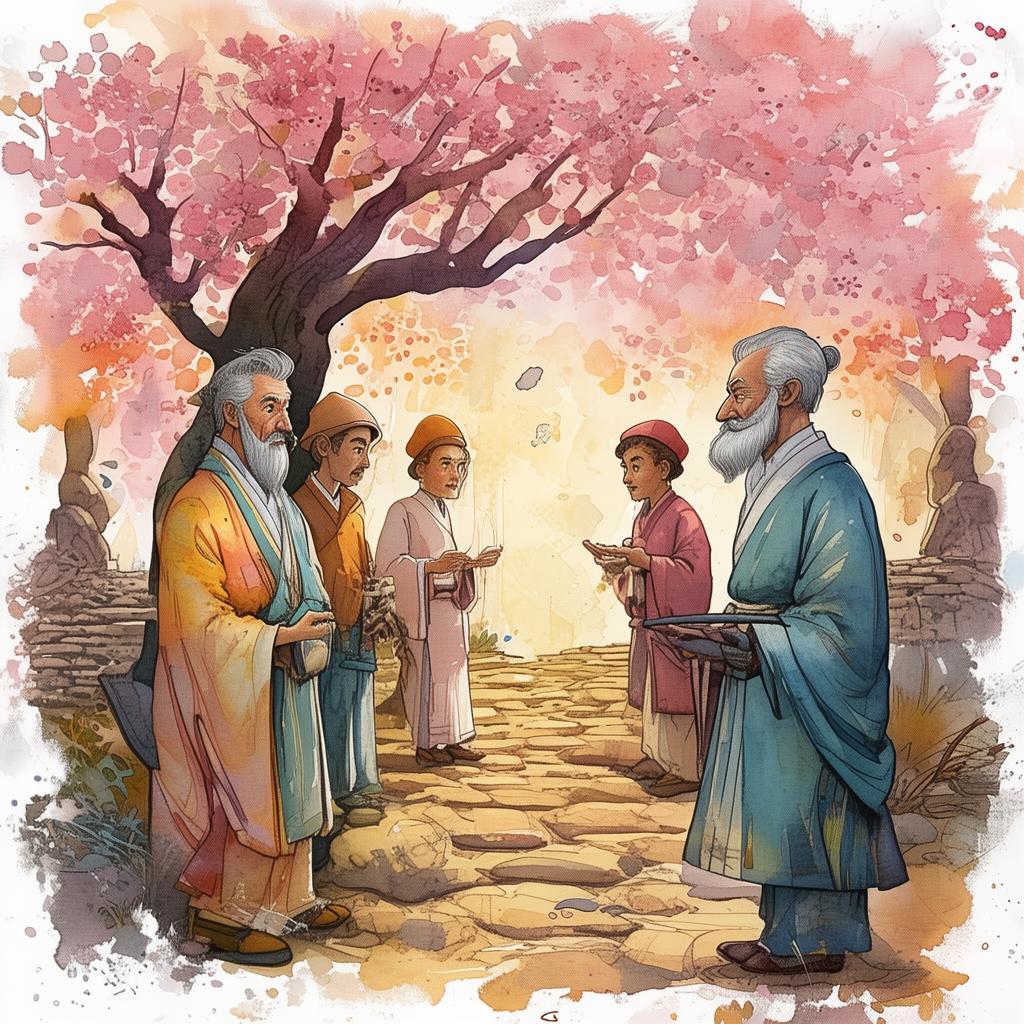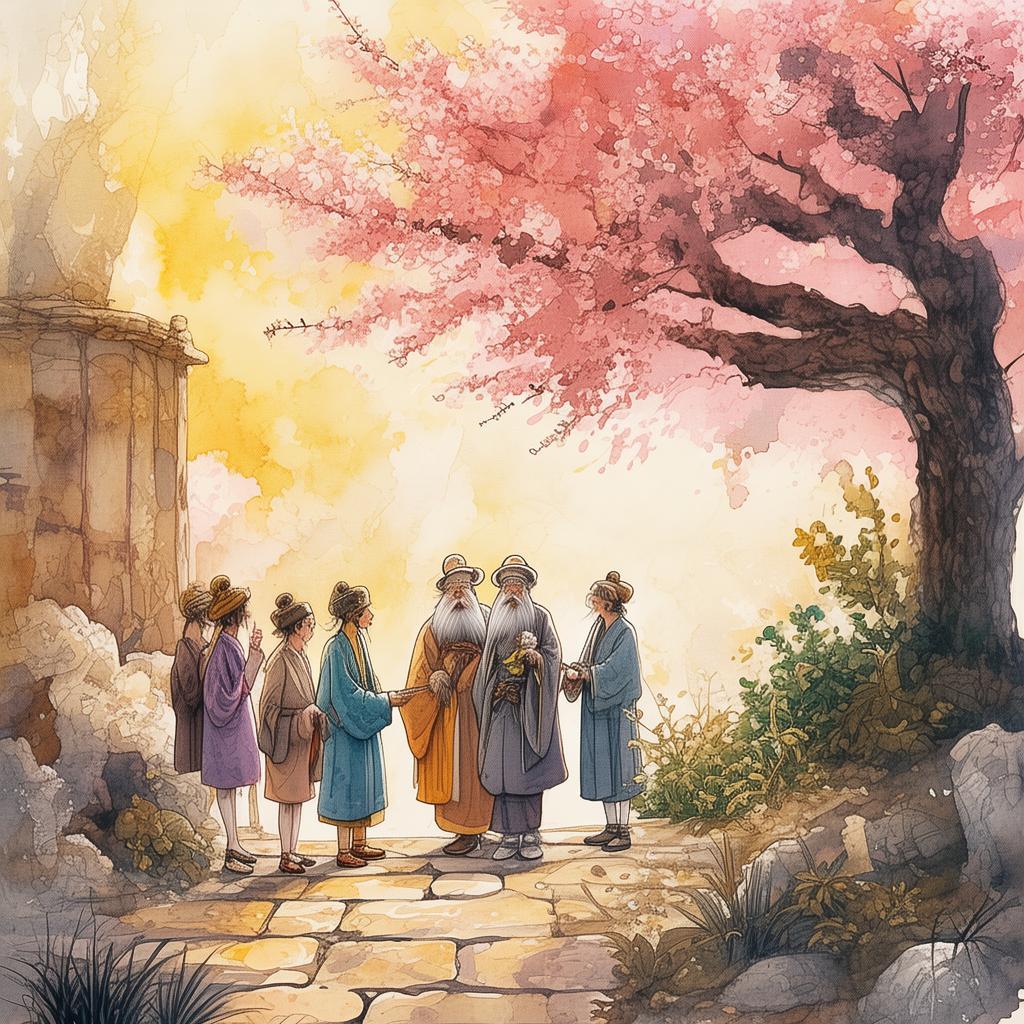The Art of the Hidden Flavor
In the heart of the ancient city of Xi'an, nestled within the bustling market that echoed with the sounds of sizzling woks and the hum of satisfied diners, there lived an Immortal Chef known far and wide for his unparalleled culinary skills. His name was Ming, and he was the guardian of a culinary tradition that had been passed down through generations, a legacy that had become a cornerstone of the city's identity.
Ming was a man of few words, but his hands were a symphony of motion, turning ingredients into works of art that tantalized the senses. His dishes were not just sustenance; they were an experience, a narrative told through flavors that danced on the tongue. Yet, for all his prowess, Ming felt a gnawing emptiness in his soul—a void that he had long tried to fill with the endless refinement of his craft.
The Immortal Chef's most prized possession was an ancient cookbook, a relic of his lineage that was said to contain the secrets of flavors that no one else in the land could match. Each page was filled with intricate instructions and recipes that had been honed to perfection over centuries. The book was his guide, his companion, and his greatest ally.
One evening, as the moon hung low in the sky and the city settled into its nocturnal rhythm, Ming sat in his dimly lit kitchen, meticulously preparing his nightly fare. As he flipped through the pages of his cookbook, he stumbled upon an entry that caught his eye: a recipe for a dish he had never seen before, one that had been hidden away among the others, almost as if it were ashamed of its existence.
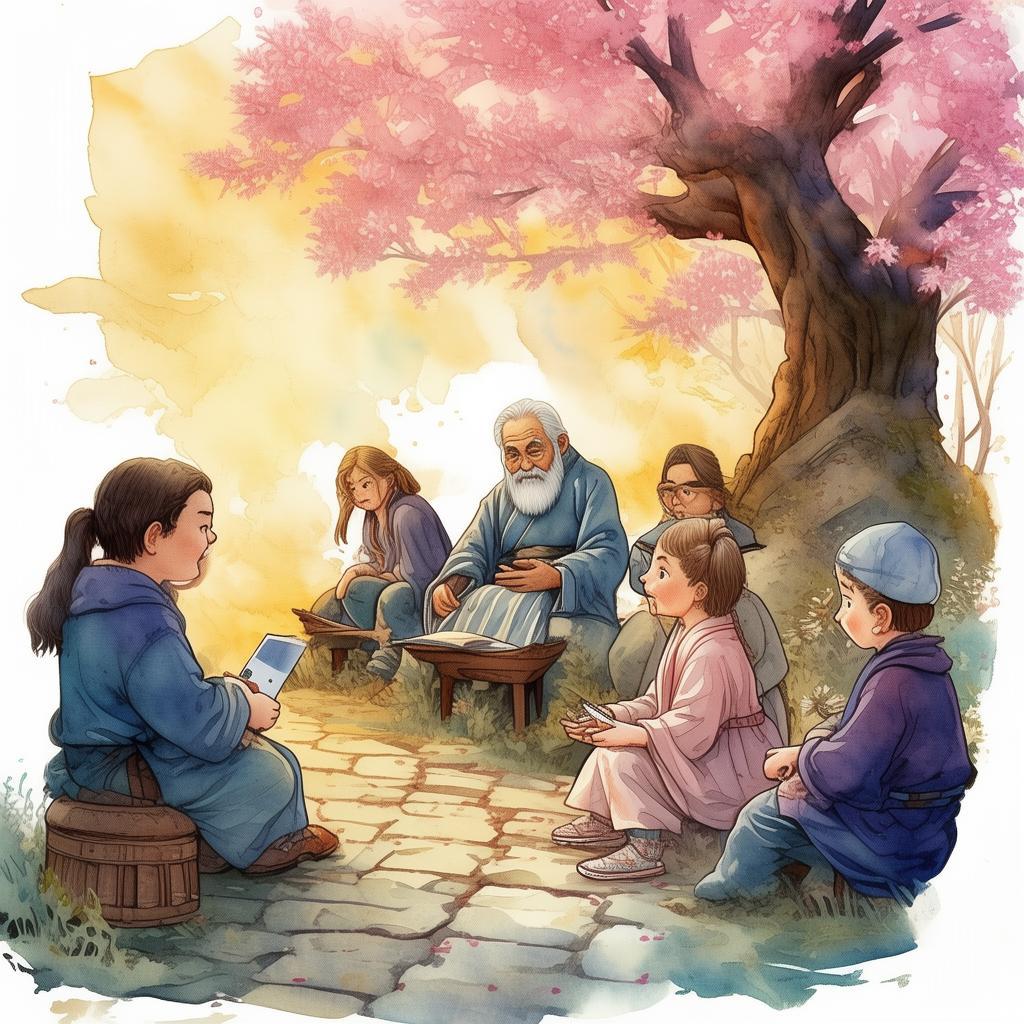
The recipe called for a "hidden flavor," an ingredient that was not to be found in the marketplace or within the city's bazaars. It was, according to the cookbook, the essence of all flavors, an ingredient that could transform any dish into something transcendent. Ming had heard whispers about such a flavor, but he had never believed it to be true. It seemed too fantastical, too far-fetched to be real.
Curiosity piqued, Ming embarked on a quest to uncover the truth of the hidden flavor. He traveled to distant lands, seeking clues and guidance from the most reclusive chefs and sages. His journey took him through arid deserts and lush forests, over treacherous mountains and across turbulent rivers. Along the way, he encountered adversaries who sought to exploit his quest for their own gain, and allies who believed in his cause and joined him on his journey.
Finally, after many years and countless trials, Ming found the source of the hidden flavor. It was not a plant or a mineral, but an emotion—joy. The joy of a chef who has mastered his craft, the joy of a diner who has found solace in a meal. Ming realized that the true essence of flavor was not in the ingredients themselves, but in the story they told and the emotions they evoked.
With this newfound knowledge, Ming returned to Xi'an, eager to incorporate the hidden flavor into his dishes. He began experimenting, blending the essence of joy with the traditional ingredients that he had honed over the years. The results were nothing short of miraculous. His dishes were no longer just an experience; they were a celebration of life, an expression of the human spirit.
The news of Ming's discovery spread like wildfire through the city. People from all walks of life flocked to his restaurant, desperate to taste the dishes that had been born from joy. The Immortal Chef's legacy was not only preserved but also redefined. The city of Xi'an celebrated Ming as a genius, a man who had not only mastered the art of cooking but had also unlocked the true essence of culinary art.
In the end, Ming learned that the key to great cooking was not in the hidden ingredients or secret recipes, but in the heart of the chef. It was in the joy and passion that they brought to their craft, and the stories that they told through each dish. The Immortal Chef had discovered the art of the hidden flavor, and with it, a new era of culinary mastery had begun.
✨ Original Statement ✨
All articles published on this website (including but not limited to text, images, videos, and other content) are original or authorized for reposting and are protected by relevant laws. Without the explicit written permission of this website, no individual or organization may copy, modify, repost, or use the content for commercial purposes.
If you need to quote or cooperate, please contact this site for authorization. We reserve the right to pursue legal responsibility for any unauthorized use.
Hereby declared.
